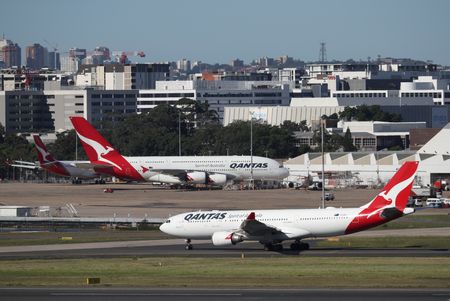 1
1 1
1

SYDNEY (Reuters) – Qantas Airways Ltd and Airbus SE will jointly invest A$2 million ($1.34 million) in a biofuel refinery being set up in Australia’s Queensland state that would convert agricultural by-products into sustainable aviation fuel (SAF).
The funds will be used for a detailed feasibility study and early-stage development of the proposed facility jointly developed by Jet Zero Australia and SAF technology firm LanzaJet, Qantas said on Thursday.
The refinery is expected to produce up to 100 million litres of SAF a year, with construction due to start next year.
SAF is a biofuel used to power aircraft that has similar properties to conventional jet fuel without the need to develop new planes or engines. It can be blended with conventional jet fuel and can reduce carbon emissions by up to 80%.
The emissions are saved throughout the production process because the feedstocks used to make SAF, including agricultural residue and wood mill waste, have lower lifecycle emissions than conventional jet fuel.
Qantas and Airbus last year set up a $200 million fund to help meet Qantas’ goal of using at least 10% of SAF in its fuel mix by 2030 after the airline placed a multibillion-dollar order for Airbus narrowbody and widebody planes.
The Queensland refinery is the fund’s first investment.
Due to the lack of a sustainable aviation fuel industry in Australia, Qantas now sources SAF at overseas airports, including 10 million litres for flights out of London in 2023 and 20 million litres for flights out of California from 2025.
The airline is targeting 10% of its fuel from SAF by 2030 and 60% by 2050 to hit its target of net zero emissions by then.
($1 = 1.4966 Australian dollars)
(Reporting by Renju Jose in Sydney; Editing by Jamie Freed)